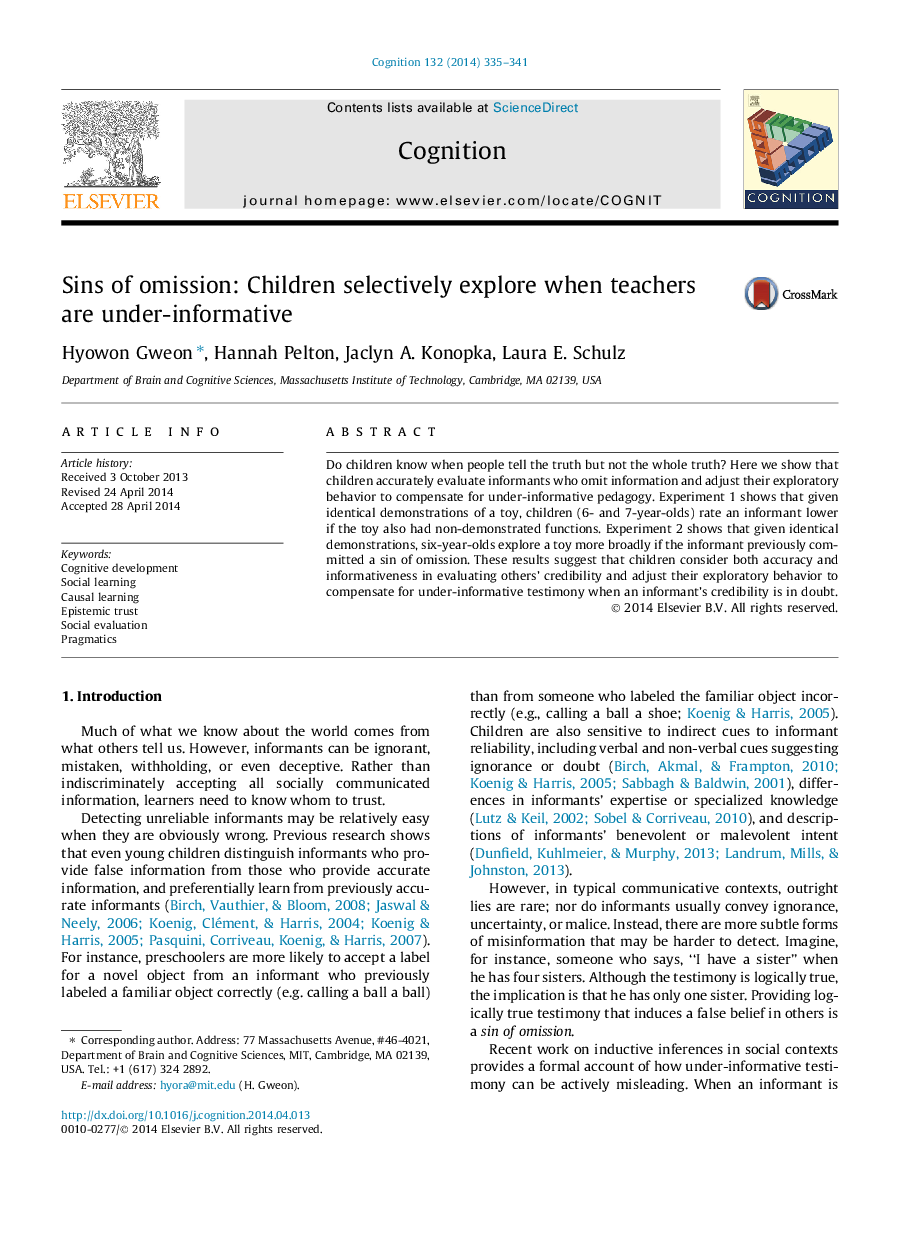| Article ID | Journal | Published Year | Pages | File Type |
|---|---|---|---|---|
| 10457529 | Cognition | 2014 | 7 Pages |
Abstract
Do children know when people tell the truth but not the whole truth? Here we show that children accurately evaluate informants who omit information and adjust their exploratory behavior to compensate for under-informative pedagogy. Experiment 1 shows that given identical demonstrations of a toy, children (6- and 7-year-olds) rate an informant lower if the toy also had non-demonstrated functions. Experiment 2 shows that given identical demonstrations, six-year-olds explore a toy more broadly if the informant previously committed a sin of omission. These results suggest that children consider both accuracy and informativeness in evaluating others' credibility and adjust their exploratory behavior to compensate for under-informative testimony when an informant's credibility is in doubt.
Keywords
Related Topics
Life Sciences
Neuroscience
Cognitive Neuroscience
Authors
Hyowon Gweon, Hannah Pelton, Jaclyn A. Konopka, Laura E. Schulz,
